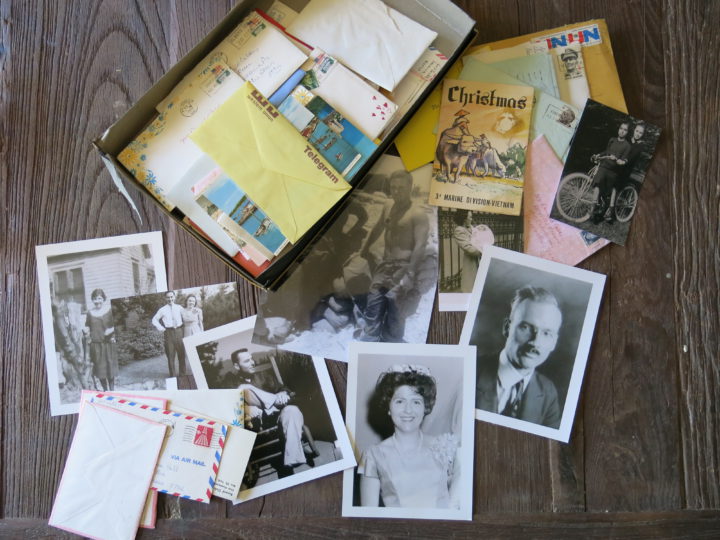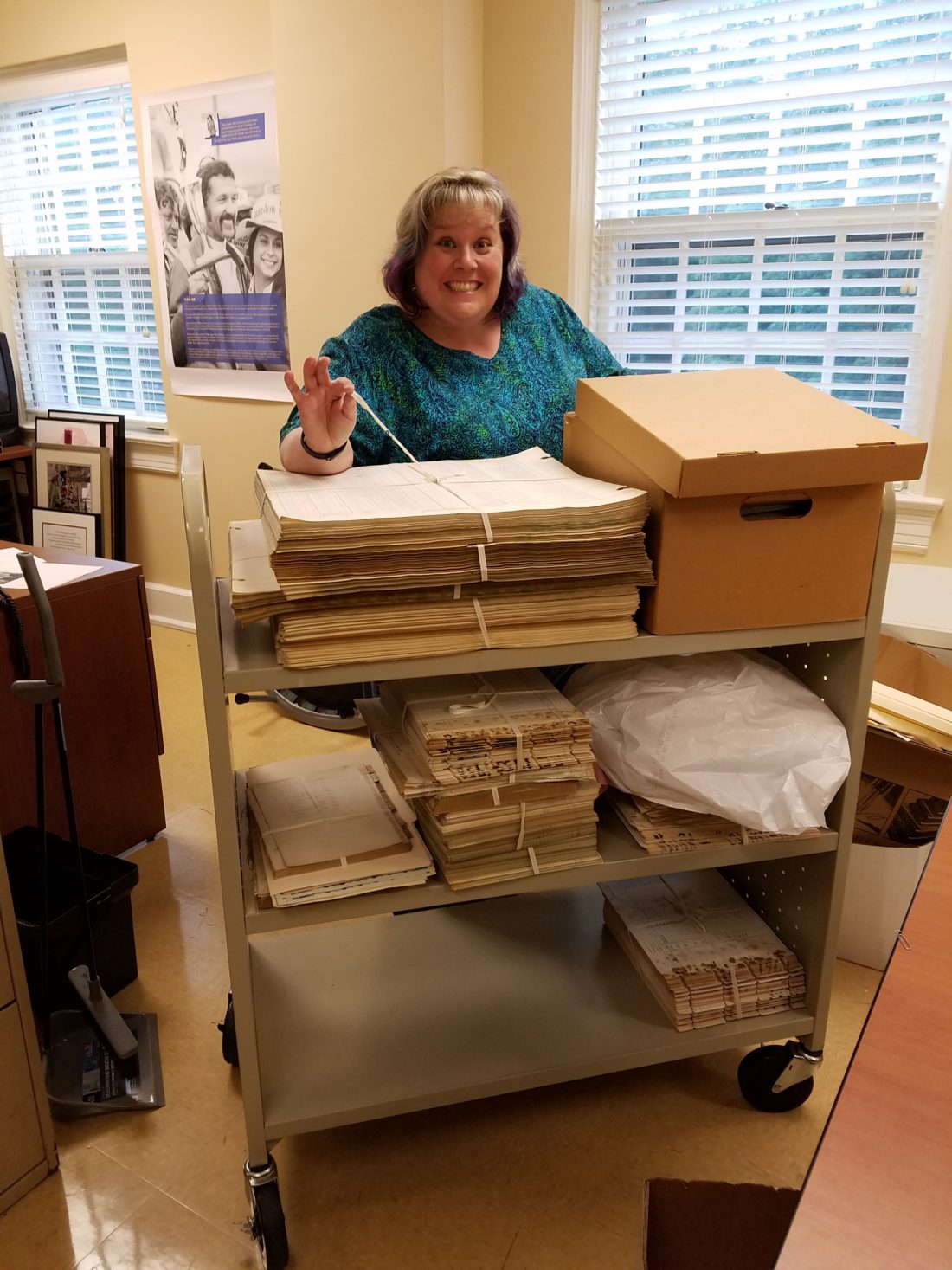As the lead archivist at the Western Regional Archives in Asheville, Heather South used to spend the majority of her workday immersed in the past. But lately, she’s shifted a portion of her focus to present-day events. Recognizing the historic moment that is COVID-19, South and her colleagues are in the early stages of devising an awareness campaign that will encourage local residents to write down, record and photograph their daily experiences.
Newspaper accounts and governmental documents will provide future historians with relevant statistics such as unemployment rates and the number of coronavirus cases and deaths, says South. But too often, she stresses, the personal details and incidents that breathe life into past events get lost or misremembered. “Like a fisherman’s story, things can get a little bigger over time,” the archivist jokes.
For those less inclined to use paper and pen, South cites email and audio recordings as viable ways to keep records. She also emphasizes that chronicling your experiences doesn’t have to be a book-length project. “It can just be a few thoughts written down every day,” she explains.
Moments of humor, distress, frustration and hope are all relevant and valuable information, South maintains. “We want a diversity of stories from people in different professions and backgrounds, because that’s how we build a better account of the history. And we want the raw emotional side of things too. No sugarcoating — we want history, warts and all.”
The Western Regional Archives will begin collecting these accounts as soon as social distancing bans are lifted and the health crisis is resolved. South and her colleagues also intend to launch an oral history project for residents who are currently unable to self-document. Looking to avoid the trappings of a fisherman’s story, however, South says these interviews will hopefully take place within the next few months rather than over a period of years.
Seize the moment
South and other local archivists also view Buncombe County’s current stay home, stay safe mandate as an ideal time to organize existing family collections — whether for the benefit of future kin or to prepare for donating those materials to one of the area’s multiple archival repositories. Whatever the objective, the process increases the chances that your files will prove useful to later generations.

Otherwise, things may get far messier. According to Katherine Cutshall, manager of the North Carolina Room at Pack Memorial Library, several of the collections archivists have processed over the years were discovered during dumpster dives. “A lot of our materials come from the trash,” she reveals.
But it’s not necessarily a question of surviving family members’ negligence, stresses Cutshall. On the contrary, such artifacts — everything from pictures to letters to journal entries — tend to end up getting tossed when the deceased person leaves behind unidentified items for others to deal with. “If you are the next of kin to somebody and you open up a closet door and you realize that everything in there needs to be organized, there’s a good chance you’ll get overwhelmed and just say, ‘Forget it,’ and throw it away,” Cutshall explains.
And while losing an entire family history leaves a hole in a community’s self-knowledge, archivists also stress the importance of thinning out nonessential items within family sets. “Just like you weed a garden, we weed collections,” says South. “Instead of keeping every photo from Christmas 1982, you keep your top 10 pictures that show the most people and the most decorations.”
Documents such as bank statements, checks and utility bills are rarely preserved in bulk by special collections. If anything, a single statement, check or bill will suffice. The same approach applies to managing private family collections. “If it’s not telling you anything significant, and if it doesn’t have Thomas Jefferson’s signature on it, then throw it away,” says Cutshall.
The bigger picture

Archivists understand that trying to organize a trove of documents spanning decades can seem daunting. “But almost all large collections are actually a bunch of smaller collections,” says Gene Hyde, head of special collections at UNC Asheville’s Ramsey Library.
If you find yourself staring at a random assortment of accumulated items, start by spreading the materials out on a table and sorting them into categories such as photos, financial documents, letters, health records and journal entries. Once that’s been done, the next step is putting each of these subgroupings into chronological order.
The process doesn’t have to be tedious, either, notes South. “You can get the kids involved if you want to make it a family affair,” she suggests. “Everyone can look over the items and reminisce.”
While reviewing photos, continues South, be sure to record the names of the people featured, along with the location and date. However, South adds, try to avoid writing directly on the originals. “Ink can bleed through,” she warns. “If you must, use a light pencil and be careful about how hard you bear down.” The best approach, she explains, would be to list pertinent information on a separate sheet of paper — the kind that’s used in photocopiers — and store it with the images.
Once you’ve introduced as much order as possible, says Cutshall, it’s time to consider where you’d like your materials to end up: with family or in an archive. In many cases, it can be both. Traditionally, special collections preferred original documents, but it’s becoming more common for these depositories to accept digital copies. Some archives, including the three whose staff spoke with Xpress, are also willing to scan small portions of the original collection to send as a digital file to the donor.
Ultimately, notes Hyde, all special collections want the same thing: individual accounts to help fill in the blanks; the experiences and feelings that are sometimes obscured by historic events. “Everyone’s story is going to be different,” he points out. “It’s part of the bigger picture, and that’s what all archivists around here are about — collecting those pieces of the bigger picture.






Before you comment
The comments section is here to provide a platform for civil dialogue on the issues we face together as a local community. Xpress is committed to offering this platform for all voices, but when the tone of the discussion gets nasty or strays off topic, we believe many people choose not to participate. Xpress editors are determined to moderate comments to ensure a constructive interchange is maintained. All comments judged not to be in keeping with the spirit of civil discourse will be removed and repeat violators will be banned. See here for our terms of service. Thank you for being part of this effort to promote respectful discussion.